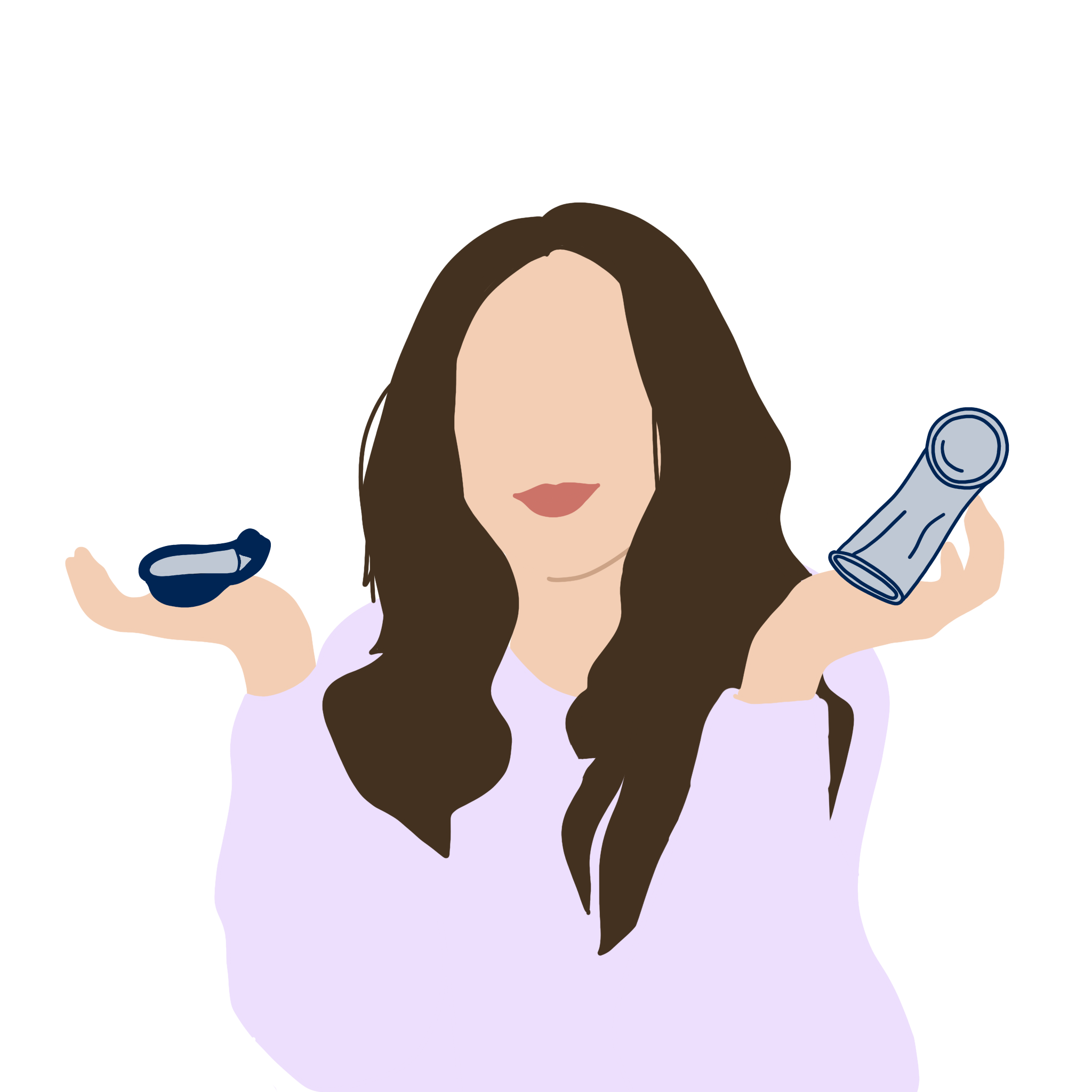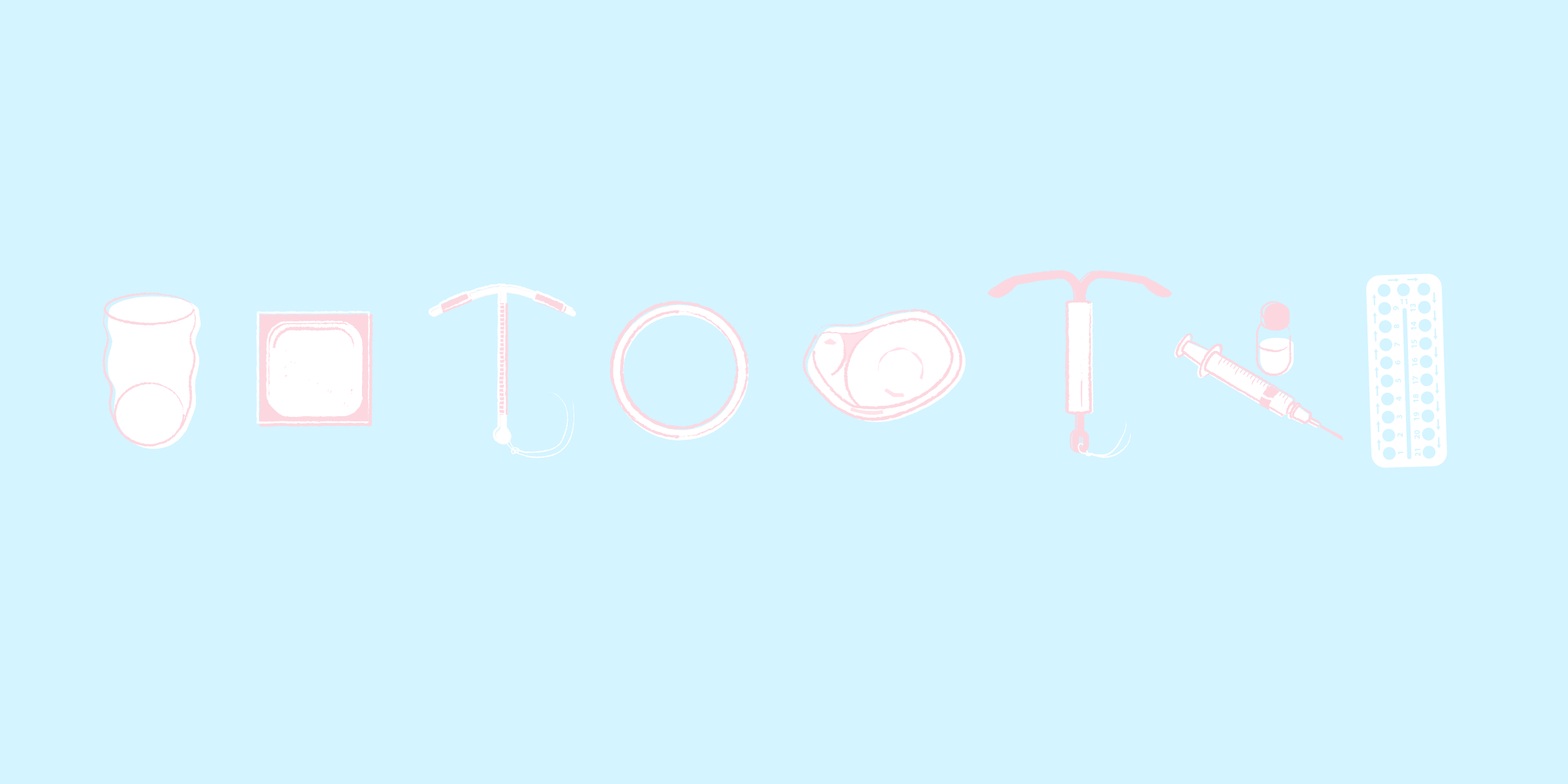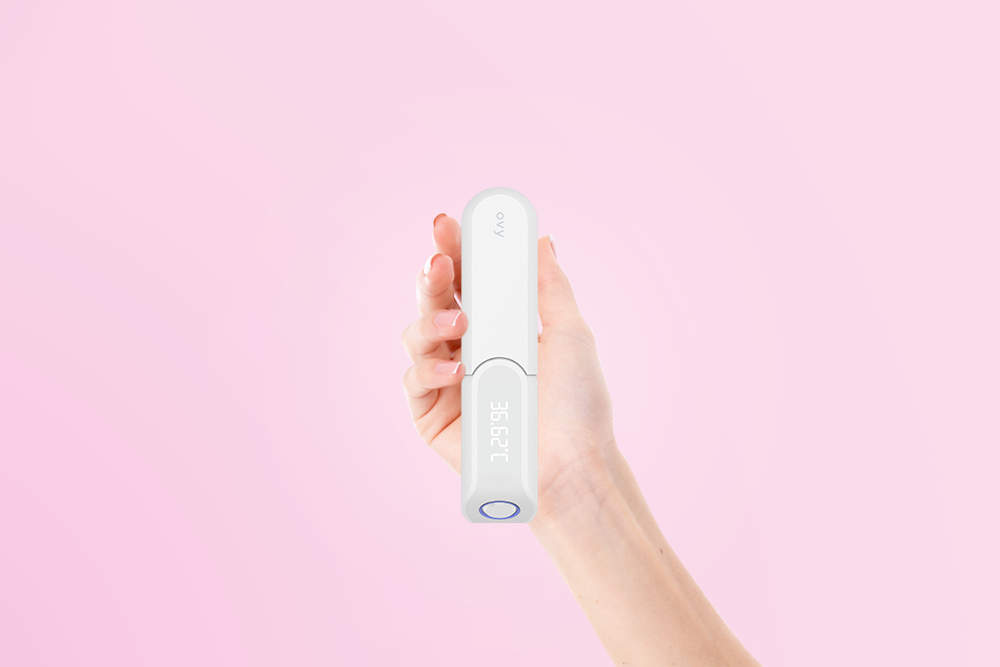Key Takeaways
- It is completely normal for libido to rise and fall in phases and depends on various factors.
- However, many women* report a low libido, especially when taking the pill.
- Libido can increase again after stopping the pill and can be increased using natural methods.
Some women who take the pill find they experience a decreased desire to have sex. A lack of libido is one of the reasons many women stop taking the pill. In this article you will learn how the pill affects the libido, how the desire for sex changes after discontinuing the pill, and how it can be increased.
1. Having an active libido is important and healthy
Sexual pleasure teaches us what we like and don’t like. It also helps us learn about our sensuality and our femininity. As well as being part of our personal development, sexual desire is also totally healthy; during sex and orgasm, endorphins (happiness hormones) are released, which strengthen the immune system. The “cuddle hormone” oxytocin makes you sleepy and tired after sexual intercourse, meaning that sex can also help you overcome sleep problems. In addition, sex also reduces the stress hormone cortisol, which has a positive effect on blood pressure and the circulatory system.
2. The pill has an effect on the libido
Women who have been taking the pill for many years in particular often complain about having a low or even totally absent libido. The desire for closeness and passion goes hand in hand with this. Some of them have believed for years that they have no need for sex at all. The pill effectively works by keeping the body permanently in the second half of the cycle in terms of hormones, i.e. the period after ovulation until withdrawal bleeding. In particular, taking an anti-androgenic pill – often prescribed as a beauty or skin pill – ensures low testosterone levels. However, women need testosterone for a healthy libido. The male hormone is responsible for sexual desire.
3. The desire for sex becomes stronger again after stopping the pill
Loss of libido is a common reason many women stop taking the pill. The good news is that it is very likely that the libido will increase again once the natural cycle has returned. However, the exact time it takes for the libido to return to normal varies from woman to woman. Some women feel like having more sex again after just a few weeks, while for others it can take several months to half a year.
After stopping the pill, the body first needs time to rebalance its hormones and wean itself off synthetic hormone substitutes. If you don’t notice any change in your libido after six months of stopping the pill, you can get to the bottom of the causes with a hormone status test taken by a doctor.
4. It’s not just the pill that’s responsible for low libido
Of course, there are reasons other than the pill that explain a weak desire for sex. Negative sexual experiences, traumas or the respective relationship situation also play a role. The psyche can also influence the libido in particularly stressful phases of life. A lack of nutrients can also lead to sexual apathy.
5. Not wanting to have sex can be a disease
If sexual apathy persists over an extended period of time, it is called libido disorder, also known as LSD disorder (“low sexual desire”). This usually has psychosocial causes and occurs more frequently in women than in men. The Weiden Clinic generally assumes that women have a 20 percent higher chance of suffering from libido disorder.
It is generally considered to be the case if symptoms last longer than about six months, provided it cannot be explained by general illnesses (for example depression), relationship problems, medication, or drug abuse. In any case, however, a doctor should be consulted.
However, asexuality as a pure sexual orientation must be distinguished from this diagnosis. In contrast to patients with libido disorder, people affected by asexuality do not feel any sexual distress.
6. You can increase libido naturally
Especially after stopping the pill, detoxification of the body can be promoted with gentle exercise and a balanced, healthy diet containing little or no dairy products or “bad” carbohydrates. Those who want to change their diet accordingly or resort to dietary supplements should make sure they get sufficient vitamin B6, zinc and magnesium, as these nutrients have a positive effect on the libido.
7. Sexual desire is highest around ovulation
To maximize reproduction, nature has ensured that the libido is strongest in the period around ovulation. This is because testosterone levels are higher than at other stages of the female cycle. Conditions for fertilization of the egg and therefore pregnancy are most favorable during this time, and your body indicates this to you with an increased desire for sex.
8. Masturbation can increase libido
Sex itself can actually increase the desire for further sexual activity, whether with a partner or alone. According to a study by the Canadian Simon Fraser University, women release the male sex hormone testosterone during orgasm. This is, as already explained in point 2, responsible for sexual desire. So if you have sex regularly, your testosterone levels can increase and so can your libido. Of course, this also includes masturbation. So why not give it a try yourself? Masturbation is also a great way to get to know your own sensuality.
9. Increase libido
If you opt for natural contraception using the symptothermal method, you don’t need to supply your body with any additional hormones. After stopping the pill, you give your body the time it needs to regulate the hormone balance and thus the libido as well. With the Ovy App and the accompanying Ovy Bluetooth Basal Thermometer, you can determine your fertile days as well as your ovulation – without using artificial hormones.
To track your cycle with the Ovy App, you need to document your basal body temperature daily. The Ovy Bluetooth Basal Thermometer automatically transfers the measurement data to the app. In addition to temperature, you also need to monitor another body signal – either cervical mucus or cervix quality.
In the Ovy App, you will find the “sex” section listed under body signals. Here you can enter whether you had protected or unprotected sexual intercourse. You can also record whether your libido was higher or lower than usual on the respective day.
If you wish to have a child, it is advisable to document your sex regularly. Based on all the data you enter, you can calculate when conception is most likely.
10. Your libido is not just your business
If you’re struggling with a low libido, it helps to talk about it. Openness is the first step to change – and in this case, to a fulfilling sex life. It can be beneficial to be open and honest with your partner about your lack of sexual desire, especially in committed sexual relationships. Talk to him or her about your sexual needs. In this way, he or she can also give you more of what may help you regain your desire for sex, tenderness and closeness.
Sources: sfu.ca, kliniken-nordoberpfalz.de, kinseyinstitute.org
Medically Reviewed
This text was created by medical editors on the basis of specialist medical literature and current studies. Our aim is to work scientifically, identify sources and regularly check that the content is up to date.
References & Literature
- Bullivant SB, Sellergren SA, Stern K, et al. (2004). Women's sexual experience during the menstrual cycle: Identification of the sexual phase by noninvasive measurement of luteinizing hormone. J Sex Res.; 41(1):82-93. doi:10.1080/00224490409552216
- M. Beutel et al. (2008). Sexuelles Verlangen und sexuelle Aktivität von Männern und Frauen über die Lebensspanne - Ergebnisse einer repräsentativen deutschen Bevölkerungsumfrage. Reproduktionsmed. Endokrinol; 5 (4), 203-211
- Gupta, Jeetendra Kumar, et al. "Scientific Basis for Deplorable Women’s Behaviour: A Connection with Hormonal Imbalance." Indian Journal of Science and Technology 12 (2019): 16.
You might also be interested in these articles
Methode
Stop taking the pill: What happens in your body when you stop taking the pill9 Min. Lesezeit





